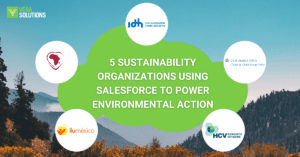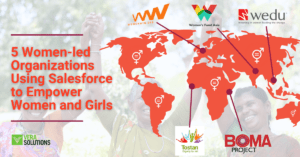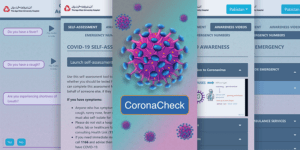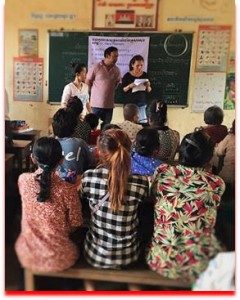
They come to Hagar to start over. Following months, but more often years, as unwilling victims of human trafficking, rape, domestic violence, child labor, and other forms of exploitation, women and children throughout Cambodia seek Hagar’s help in processing their experiences and preparing for a new life. Through intensive counseling, medical support, education services, and job placement assistance, Hagar Cambodia works with more than 600 individuals per year — providing whatever it takes, for as long as it takes — to help women and children to become their strong, independent, and resilient selves once again.
In global development, there is often an assumption that scale equals success and that sheer numbers can tell a story about who an organization serves and what those services might mean to them. Industry-wide, we work to fend off such stereotypes, so that organizations providing individualized, long-term care, like Hagar, continue to thrive. Hagar approaches its rehabilitation work in phases, but without a deadline. They serve the whole person, supporting an individual’s recovery from unspeakable crimes through four phases:
- Protection: Help securing safe accommodation, identity cards and birth certificates, pursuing legal action, testifying in a court case, understanding his or her rights, and beyond
- Recovery/Well-being: Community-based recovery services, intensive post-trauma counseling, 24-hour crisis support, help with medical needs, art therapy, sport, and life skills training
- Economic Empowerment: Early childhood education, formal schooling, and scholarships for collegiate-level education, in addition to literacy education, vocational skills, career counseling, and on-the-job training
- Reintegration: Assistance integrating into a client’s community of choice by reconciling or reconnecting with family or finding a loving foster home
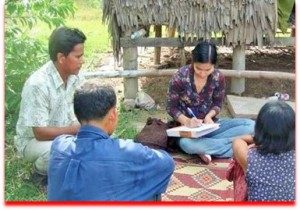
Serving women and children in 21 of Cambodia’s 25 provinces, Hagar’s case managers, counselors, and foster care teams juggle immense workloads and reams of data. For a case manager, a single day might include: making follow-up appointments with clients, attending clients’ doctor’s appointments, visiting a child’s school or an adult client’s employer. The Hagar team is enveloped in emotionally draining work, which ranges from addressing mental health, health, safety, and legal issues with their clients to supporting clients’ access to housing, economic empowerment activities, and community networks. They face a myriad of roadblocks and logistical challenges in their day-to day; they navigate bureaucracy and unpredictable phone and internet connectivity, while travelling long distances between client visits. “They all travel extensively throughout the country, providing services to our clients, their families, and communities,” said Hagar Cambodia Executive Director Mike Nowlin. “Many roads are very difficult to travel on and staff sometimes have to go by car or bus, then get on a boat, then take a tuk tuk to a remote village…and then maybe the road is impassable due to the rainy season.”
From Excel to Salesforce: Case Management in the Cloud
In years past, Hagar relied on an extensive library of Excel files to document contact with each client. The spreadsheets were then printed on a monthly basis and deposited into the appropriate physical file, leaving the office littered with filing cabinets and paper records. In order to avoid the hazard of having many copies of a client’s physical case file spread throughout multiple departments and office locations, Hagar sought a centralized system that would allow their on-the-move team access to the same holistic client information — day or night, whether based in rural Cambodia or Phnom Penh. Vera partnered with Hagar Cambodia to customize the Salesforce platform into a case management solution.
Following a site visit to better understand their requirements, Vera built Hagar a cloud-based case management system that mimics their internal processes and paper forms, safeguards their data, and keeps the entire Hagar team up-to-date on client happenings. Hagar’s transition to Salesforce means that previously dead data is now alive and actionable. Each client interaction is now logged in Salesforce, allowing the organization’s leadership team to ascertain in minutes when and by whom a client has last been visited or supported by Hagar. Through the use of customized reports, Hagar is now able to assess each case manager’s workload in real-time and track individual client progress by program.
These operational insights have not only helped Hagar to become more efficient, but have also led to increased staff accountability. With a streamlined data system in place, Hagar has been able to decrease staff time spent gathering information for external partners: “Having client data, program data, and NGO/government contact information all in one place has saved staff so much time – and time is money,” said Nowlin. Reporting to funders – an activity that previously took days of staff time as Hagar analyzed and compared numerous spreadsheets in order to share, for example, the number of clients under the age of 15 who participate in a particular program – is now possible with a few clicks of a button. Customized reports and dashboards are actively being used by Hagar as they apply for new funding opportunities and report to current supporters.
What’s next for Hagar?
Following the introduction of Salesforce, Hagar is eager to start collecting information via tablets, thereby enabling case managers, foster care workers, and counselors to input client details on the go. As they live in their system, Hagar continues to recognize new uses for their Salesforce system. They look forward to expanding the system’s functionality and incorporating an indicator management in the next phase of development, which will allow them even deeper insight into their clients’ needs and programmatic data.

